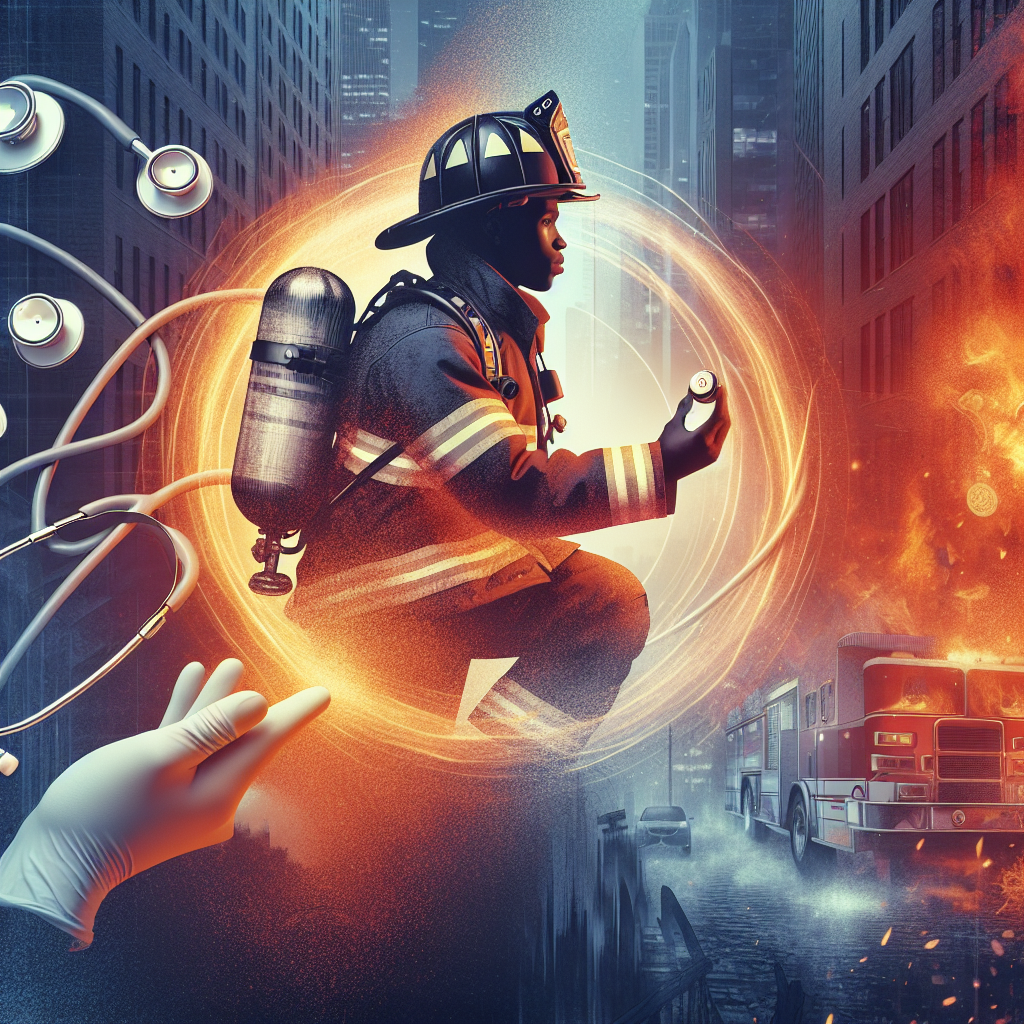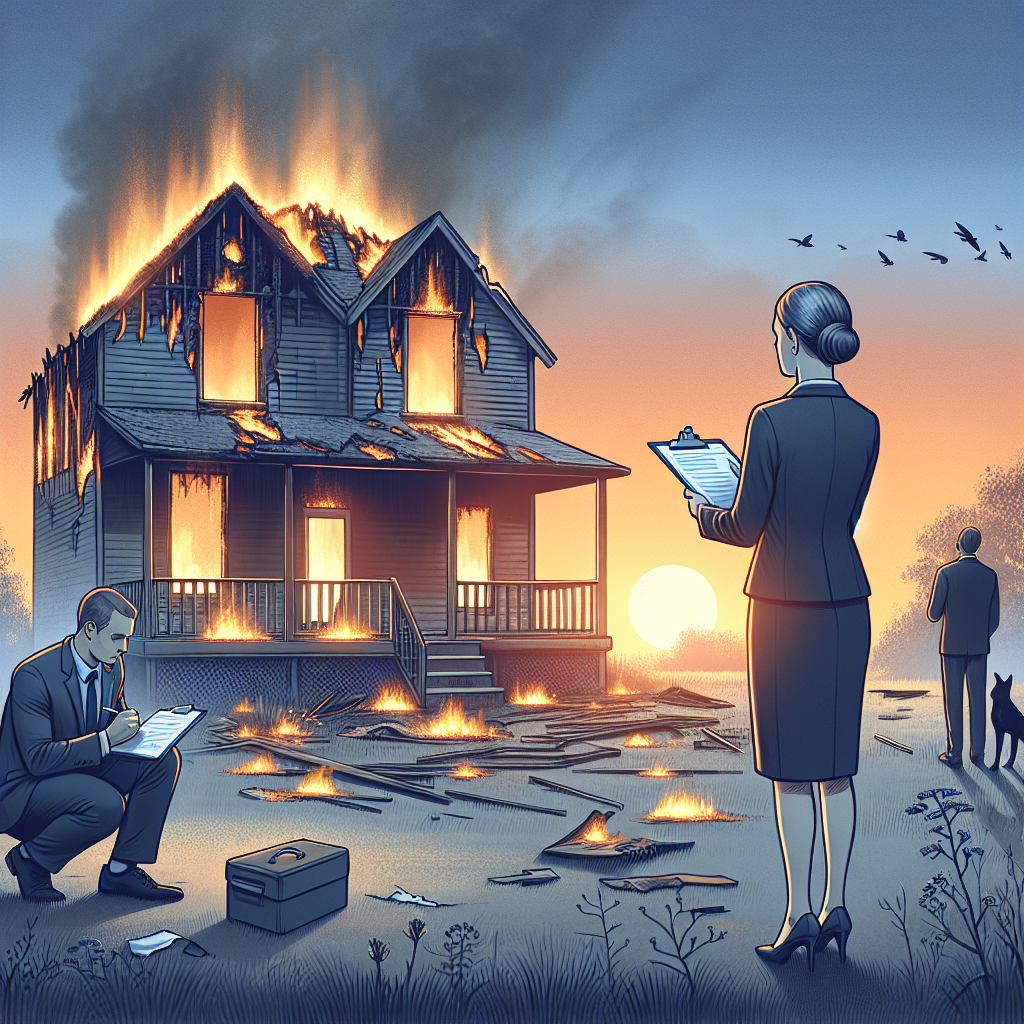Filed under Health Insurance on
Firefighter Health Insurance: Essential Coverage Guide

Firefighting is a noble profession that requires immense bravery, skill, and dedication. Firefighters are often put in life-threatening situations to protect lives and property, making their health and well-being a top priority. An integral part of ensuring their health is having comprehensive health insurance coverage. In this essential guide to firefighter health insurance, we'll explore what makes up this crucial coverage, the components to look for, and answer some frequently asked questions to help you make informed decisions.
Understanding Firefighter Health Insurance
Firefighters face unique risks both on the job and off, which makes health insurance a vital concern. Firefighter health insurance is designed to provide protection against a variety of hazards and health challenges specific to the profession. It encompasses medical care during and after service, focusing on the physical and mental health issues that may arise from their demanding work environments.
Components of Firefighter Health Insurance
- Basic Coverage: This includes hospital and emergency room visits, prescription medications, and doctor appointments. Firefighters need access to these services as a fundamental part of their healthcare.
- Preventive Care: Regular check-ups, immunizations, and screenings are crucial for early detection and prevention of illnesses, particularly those related to cardiovascular and respiratory systems.
- Specialist Access: Due to the physical and psychological demands of the job, firefighters often require specialized medical attention—from orthopedists for injuries to mental health professionals for stress management and trauma counseling.
- Rehabilitation Services: Injuries sustained on duty may necessitate physical therapy and rehabilitation. Coverage for these services ensures firefighters can recover and return to work without financial strain.
- Occupational Health: Monitoring for job-related health issues, such as exposure to hazardous materials, is a critical aspect of health insurance for firefighters.
Why Is Firefighter Health Insurance Essential?
Given the inherent risks and stresses of firefighting, health insurance is not just a benefit—it's a necessity. Firefighters are routinely exposed to smoke, hazardous materials, and traumatic events. These factors can lead to long-term health complications that require substantial medical intervention. Having a strong health insurance policy helps mitigate out-of-pocket costs and provides peace of mind, allowing firefighters to focus on their crucial role in society.
Real-life Example: The Cost of Health Without Insurance
Imagine a firefighter named John who suffers a severe back injury from a building collapse during a rescue mission. Without proper health insurance, John faces exorbitant hospital bills, costly surgeries, and months of rehabilitation. This financial burden could potentially devastate John's personal finances and affect his family's well-being. With comprehensive insurance, however, John's medical expenses are managed, allowing him to concentrate on his recovery rather than the looming medical expenses.
Mental Health: An Overlooked Component
Firefighters regularly encounter traumatic events such as witnessing fatalities, dealing with hostile situations, and enduring catastrophic accidents. These experiences can have a profound effect on mental health. Therefore, mental health services such as counseling and therapy should be integral to any firefighter health insurance policy. Programs and support networks aimed at reducing stress and preventing conditions like PTSD should be readily accessible to firefighters.
Choosing the Right Health Insurance Plan
Choosing the right health insurance plan requires understanding specific needs and comparing various options. Here are some practical steps:
- Assess Your Needs: Consider both physical and mental health needs, the likelihood of work-related injuries, and any existing medical conditions.
- Evaluate Available Plans: Look for plans that offer comprehensive care, including specialist visits, mental health support, and rehabilitation services.
- Check Network Restrictions: Ensure that the insurance plan includes a wide network of medical providers, so that accessing care is convenient and cost-effective.
- Consider Additional Coverage: Life and disability insurance plans are also worth considering to provide added security for you and your family.
- Budget Concerns: Weigh the premium costs against the benefits offered. Remember, cheaper does not always mean better when it comes to health insurance.
Common Challenges in Firefighter Health Insurance
Some challenges faced by firefighters in acquiring suitable health insurance include rising premium costs and limited access to specialists. Additionally, balancing the need for comprehensive coverage with budget constraints can be difficult. Fire departments and unions play a crucial role in negotiating better policies for their members, often securing group health plans that offer broader coverage at lower costs.
Real-life Example: Negotiating Better Plans
In 2020, a fire department in California worked alongside a local union to negotiate a new health insurance package for their members. This resulted in reduced premiums and higher coverage limits for mental health services, addressing a significant gap identified by the firefighters themselves. This collaborative approach not only saved money but also improved access to necessary healthcare services.
Conclusion: Health Insurance is a Lifeline for Firefighters
Firefighter health insurance is more than a perk—it's essential for safeguarding the well-being of those who put their lives on the line every day. Comprehensive coverage that includes physical and mental health support ensures that firefighters can continue to serve their communities effectively. As you evaluate and choose an insurance plan, remember to consider both current needs and future possibilities to ensure you and your family are fully protected.
FAQs on Firefighter Health Insurance
- Does firefighter health insurance cover family members?
Typically, firefighter health insurance can extend coverage to family members such as spouses and children. However, the specifics vary by plan, so reviewing the coverage details is important.
- Are pre-existing conditions covered under firefighter health insurance?
Most plans provide coverage for pre-existing conditions; however, there may be waiting periods or specific requirements. It's essential to review the policy terms related to pre-existing conditions.
- What is the role of a firefighter union in health insurance?
Firefighter unions often negotiate for better health insurance policies, striving to secure better rates and broader coverage for all members. They can be an invaluable resource in obtaining and understanding benefits.
- How does worker's compensation differ from health insurance?
Worker's compensation specifically covers injuries or illnesses that occur during the course of work, whereas health insurance provides more comprehensive coverage, including preventative and non-work-related health issues.
- Can retirees maintain their health insurance benefits?
Some health insurance plans offer retiree benefits, but this depends on the policy and the department's financial policies. Retirees should consult their department's HR for specific details about post-retirement coverage.





